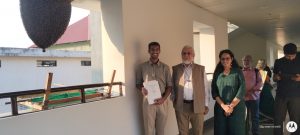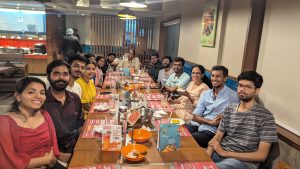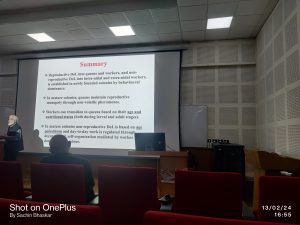Sachin has been awarded the Small Research Grant (spring 2024) from the British Ecological Society, London, for his work on co-flowering communities in the shola grasslands.
Additionally, he was also awarded a seed grant from the Association for Tropical Biology and Conservation (2024), for his work on flower-cheater dynamics in the southern Western Ghats, India.




